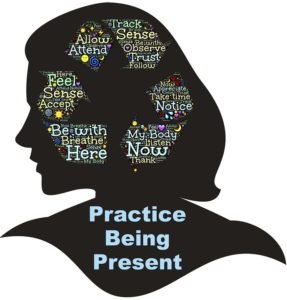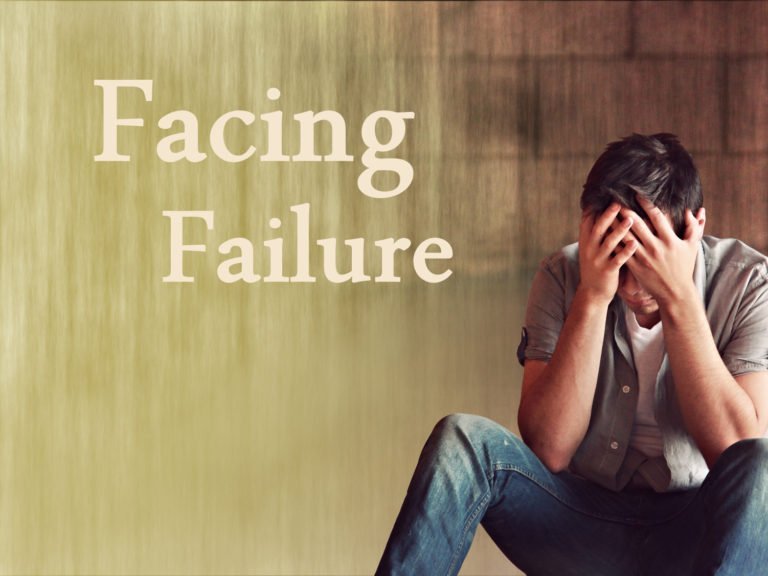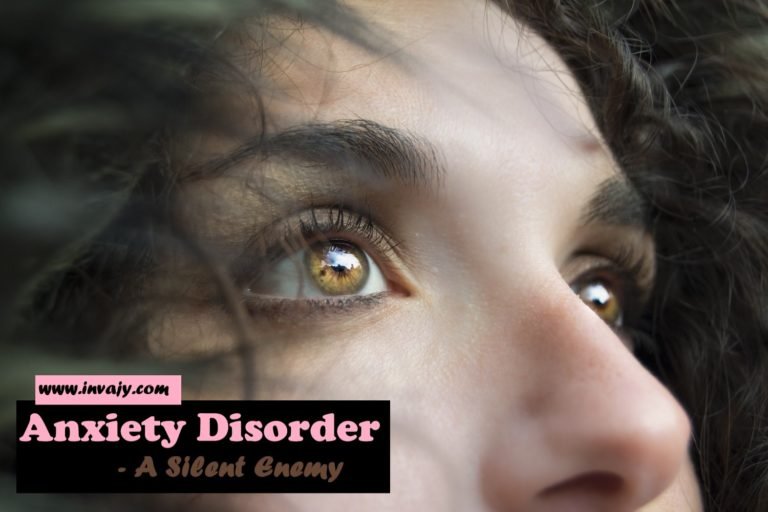How to Deal with Sadness and Feel Better?
To deal with sadness, acknowledge your feelings, talk to supportive friends or a counselor, engage in activities you enjoy, and practice self-care. Embrace patience and give yourself time to heal.

We all feel sad some or another point of time in life. Sometime there is valid reason which triggers this emotion. It is absolutely normal to experience the feelings of sadness and despair in response to adverse life events. But at times it may happen for no apparent reason. This is a serious issue and may be an indication of depression. Feeling sad is an integral part and symptom of the depression, but they are not the same. Let’s first understand the difference between the two.
Difference between the depression and sadness
Since pervasive sadness is associated with depression as its primary symptom, most of the people find it difficult to tell the difference between these two common psychological states.

What is Sadness?
Sadness is a typical human emotion that every single person has experienced at stressful or sombre times and will experience again. Sadness is a transient emotional state that is generally associated with negative moods and unhappy feelings. A number of life events, experiences or situations; which are tough, hurtful, difficult, challenging or disappointing can leave people feeling sad or unhappy.
Sadness varies in intensity and duration, but a defining feature is that it is a temporary feeling.
Causes of Sadness
More often than not, sadness has links to a specific trigger. Following disappointing situations, experiences, events and incidents can affect mood and swing it in a negative direction.
- Loss or absence of a loved one
- Breakup or divorce
- Loss of job or income
- Not getting a job
- Financial trouble or crisis
- Failing an exam
- Mental illness
- Hormonal changes
- Not sleeping well
- Not exercising enough
- Loneliness
- Family and social environment
- Weather conditions
- Change in life like house, position at work, workplace
Apart from listed above experiencing other disappointing events or incidents can also trigger sadness.
If sadness and low mood lasts longer than 2 weeks or gets worse, you should talk to your doctor.
Depression
Depression is an unusual emotional state. It is a mental illness that affects your mind-set, thinking, perceptions, emotions, and behaviors in persistent and chronic ways. When you are depressed you start feeling sad about each and everything.
Unlike sadness, depression does not necessarily require a difficult situation, disappointing incident or event, a change of circumstance, or a loss as a trigger. In fact, it often occurs in the absence of any such triggers. On paper a person’s life might seems perfectly fine—he/she would even admit this is true—and yet he/she still feel horrible.
Symptoms of Sadness
- Loss of interest and enthusiasm in daily activities
- Social withdrawal
- Slowed movement
- Slumped posture
- Not being able to sleep at night
- Loss of appetite and weight
- A sense of guilt
- Difficulty in concentrating
- Restlessness
- Anxiousness
- A sense of worthlessness and a lack of motivation
- Decrease in reward seeking
- Fatigue
- Increased or decreased heart rate
Ways to deal with sadness and feel better
Here are the tips to conquer the feelings of sadness and live a happier and fulfilled life.
Acknowledge your Feelings
The first step in dealing with sadness is acknowledging it. Denying your emotions or trying to push them away may make them more intense in the long run. It’s important to give yourself permission to feel what you’re feeling. Take a moment to recognize the sadness without judgment, and allow yourself to experience it without rushing to “fix” it.
Certainly, feeling sadness can hurt, but suppressing our emotions can often backfire in an unhealthy way. Acceptance and expression often go hand in hand in terms of navigating an emotional time. Do not ignore your feelings, but doing so will only make you feel worse in the long run. Don’t be afraid to have a good cry if you need to.
Identify the Root of your Sadness
Everyone feels sad at times, but we don’t always experience sadness for the same reasons. Sadness has many potential causes, and two people could react to the same event differently. After acknowledging the sad feelings, the next step is to identify the root cause of your sadness. If you’re dealing with sadness, your feelings could be caused by several things i.e. relationship issues, personal loss, unhealthy thought patterns, depression, stress and poor sleep quality etc.
Express Your Emotions
Sometimes, keeping your emotions bottled up can exacerbate sadness. If you are experiencing sadness, you can usually find some relief from crying, venting, or talking out frustrations. Talk to someone you trust, such as a close friend, family member, or therapist.
Speaking about your feelings helps you process the sadness and can often offer a new perspective. It happens that sometimes you are not able to see the things from an angle, your friend or family member may see. They might have some insights that you can’t identify yourself, which might help you figure out what is reason behind your sadness.
If verbalizing your emotions feels difficult, consider writing in a journal or engaging in creative activities like painting or music.
Allow Time for Healing
Have patience and give some time to situations, incidents and events to pass on. Sadness usually passes away with time. If it does not pass, or if you find yourself unable to resume normal function, this could be a sign of depression.
In other words, you feel sad about something. And when that something changes, when your emotional hurt fades, when you have adjusted or gotten over the loss or disappointment, your sadness remits.
The sadness won’t last forever. Setbacks and problems are temporary in nature and every problem has a solution.
Trying to rush through your emotions or expecting them to disappear instantly can be counterproductive. Give yourself the space to process your feelings at your own pace. Over time, the intensity of sadness typically lessens as you work through the emotions and integrate the experience into your life.

Practice Self-Compassion
It’s easy to become critical of yourself when you’re feeling sad. Thoughts like “I shouldn’t feel this way” or “I’m weak for being upset” can worsen the emotional turmoil. Instead, practice self-compassion. Remind yourself that it’s okay to feel sad sometimes and that you’re not alone in this experience. Be kind to yourself as you would be to a friend going through the same emotions.
Think Positive
Have a positive outlook and make an effort to think positively. This will act as a protective shield against sadness. People who tend to think more negatively are more at risk of feeling sad. They feel sad more frequently and for longer duration. Change in the way you look at the things will do wonders. Look at the thing with posi-positive approach. It will help you to move your spotlight from black dots of life.
Resilience
Resilience means being able to adapt to life’s misfortunes and setbacks. Be resilient, accept the things and situations which are not under control and can’t be changed. Being flexible and get adjusted according to changing requirements will ensure that you do not feel sad. Resilience protects you from sadness, depression and other mental health issues.
Change Perspective
Change your perspective and Look at the problems as challenges. It will help you to bounce back from the difficult and disappointing situations, events and problems. How do you respond to challenging situations and changes in life derives the results or outcomes. And when the result or outcome is positive you kick away the feelings of sadness and unhappiness.
Many times, it happens that people are scared with problems and do not make any effort. It results in negative outcome and they feel sadder. Face things head on. Try not to stay in bed all day ignoring situations and avoiding things. So have courage, make a full effort and see the difference.
Practice Mindfulness
Mindfulness helps in overcoming sadness. Mindfulness changes how you process your sadness. Being mindful involves focusing on the present moment and is a skill that needs to be practiced. While you do it you become more aware about your thought process and situations which triggers the sad feelings. Mindfulness also helps to be aware about what is happening in your body when emotions of sadness are present. In turn helps you to have better control over your response to such situations.

Further, try to practice engaging your senses in the present moment. Focus on taste, sound, sight, touch, and smell. Engaging the senses leaves less time for worry and feelings of sadness.
Engage in Physical Activity
Exercise is one of the most effective ways to combat sadness. Physical activity triggers the release of endorphins, the brain’s natural “feel-good” chemicals. Even a short walk, yoga session, or stretching routine can help lift your mood. Exercise not only benefits your body but also boosts your mental health by promoting a sense of accomplishment and well-being.
Practice Self-Care
It can be hard to take care of yourself when you’re unhappy and feeling sad. Sadness can sometimes manifest physically, leading to symptoms like fatigue, sleep disturbances, and lack of appetite. Make sure you’re getting enough rest, eating nutritious foods, and staying hydrated. If you’re struggling to sleep or maintain healthy habits, consider seeking advice from a healthcare professional.
Self-care is an important part of dealing with your sad emotions. Taking a hot shower, dressing in comfy clothes, staying hydrated, and spraying some of your loveliest perfume may make you feel better. Start your day a little earlier, get out of the house, even for a 5-minute walk.
The small-small self-care activities will make a difference.
Seek Professional Help if Needed
If sadness persists for an extended period or begins to interfere with your daily life, it may be time to seek professional support. A therapist or counselor can help you understand the root causes of your sadness and develop coping strategies. If you’re experiencing symptoms of depression, such as loss of interest in daily activities, feelings of worthlessness, or thoughts of self-harm, reaching out to a mental health professional is crucial.
Wrapping Up!
To sum up, It’s okay to feel sad, everyone feels sad sometimes and its a normal feeling. There are ways to deal with sadness and you can learn to manage your sadness. Feeling sad does not mean you are experiencing depression. If you have been feeling persistently sad for more than two weeks or you have lost interest in most of your usual activities, you might be depressed. In this case, it is important to seek help.
Please share your experiences and views on ways to deal with sadness in the comment section below. I and the other readers will love to learn from your experiences.
If you have liked this article, please share it at your favorite social networks.






